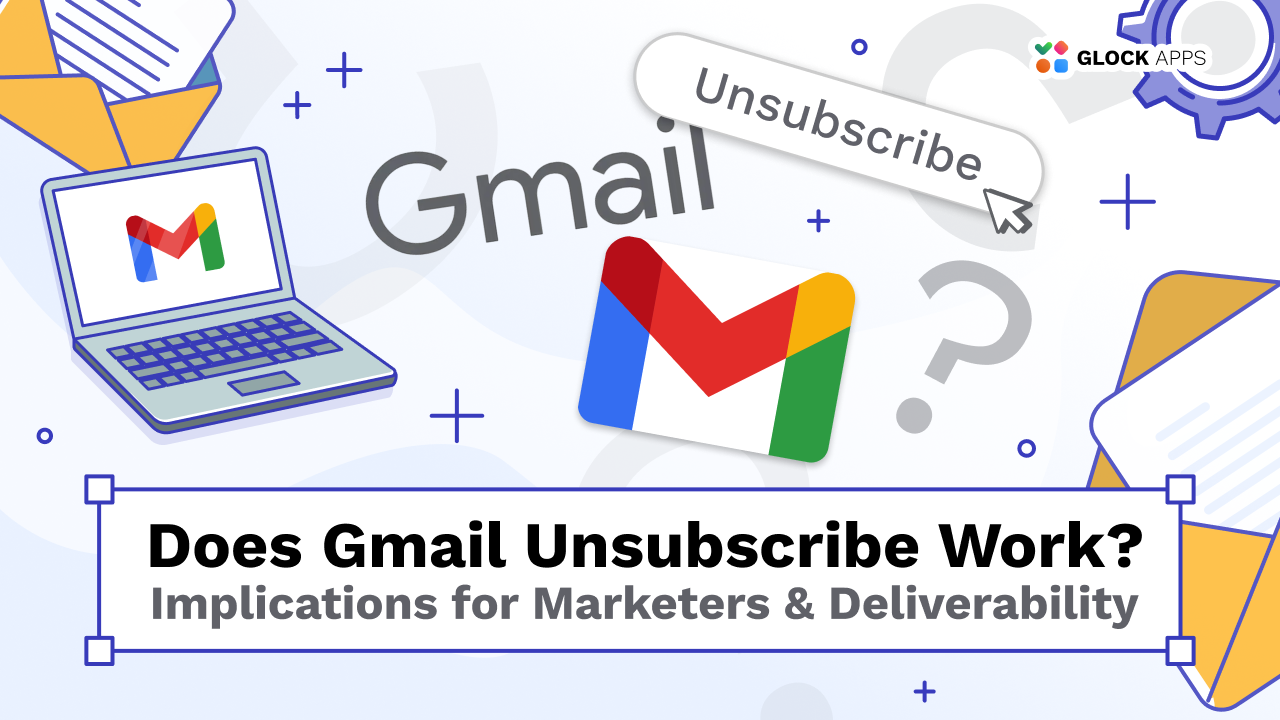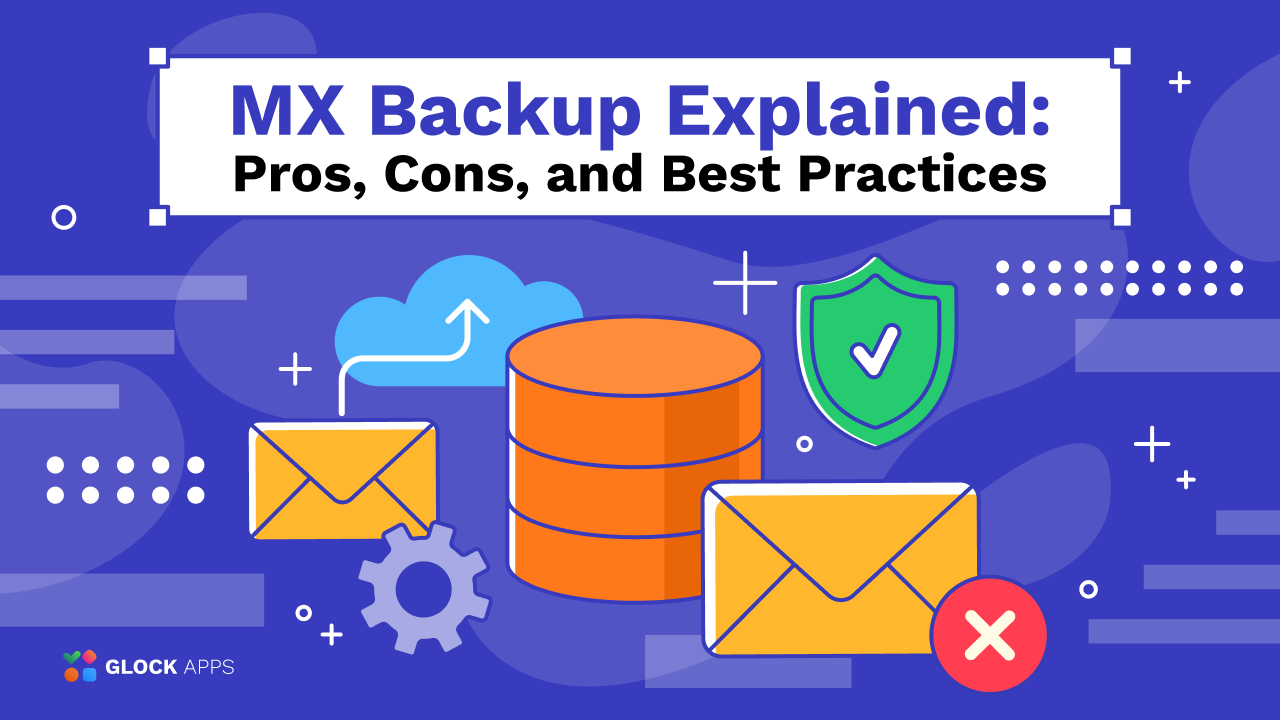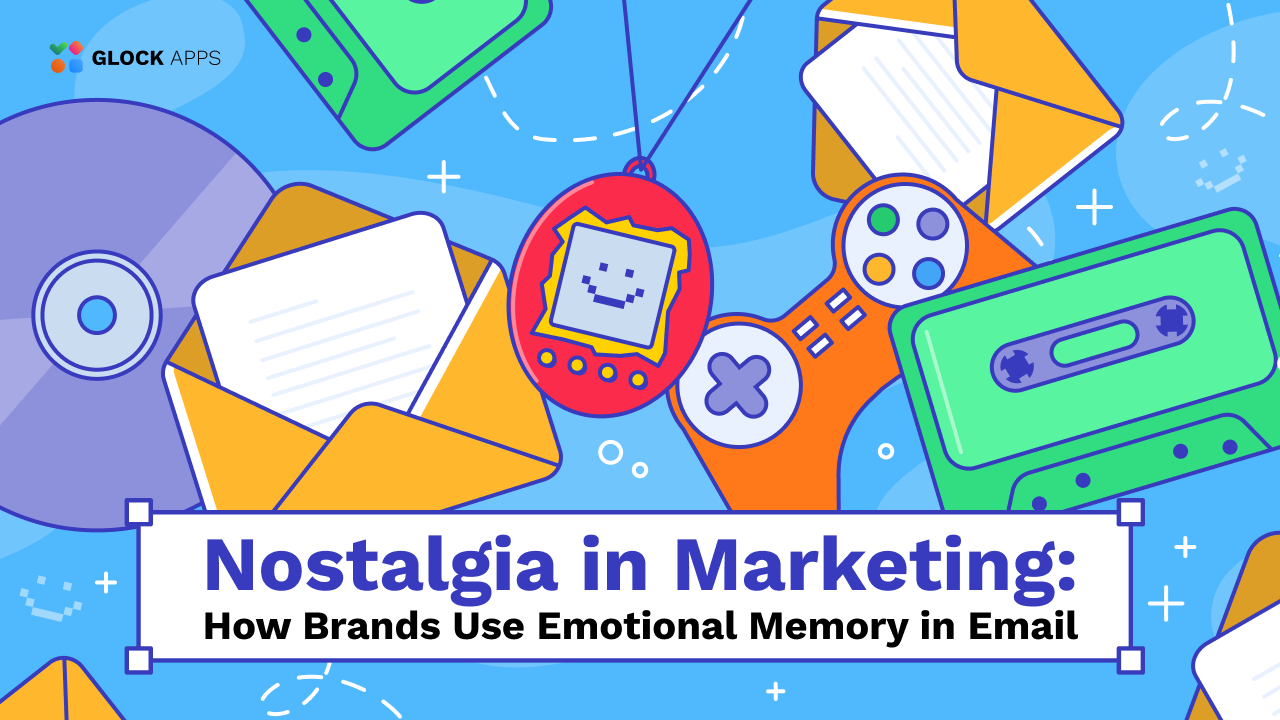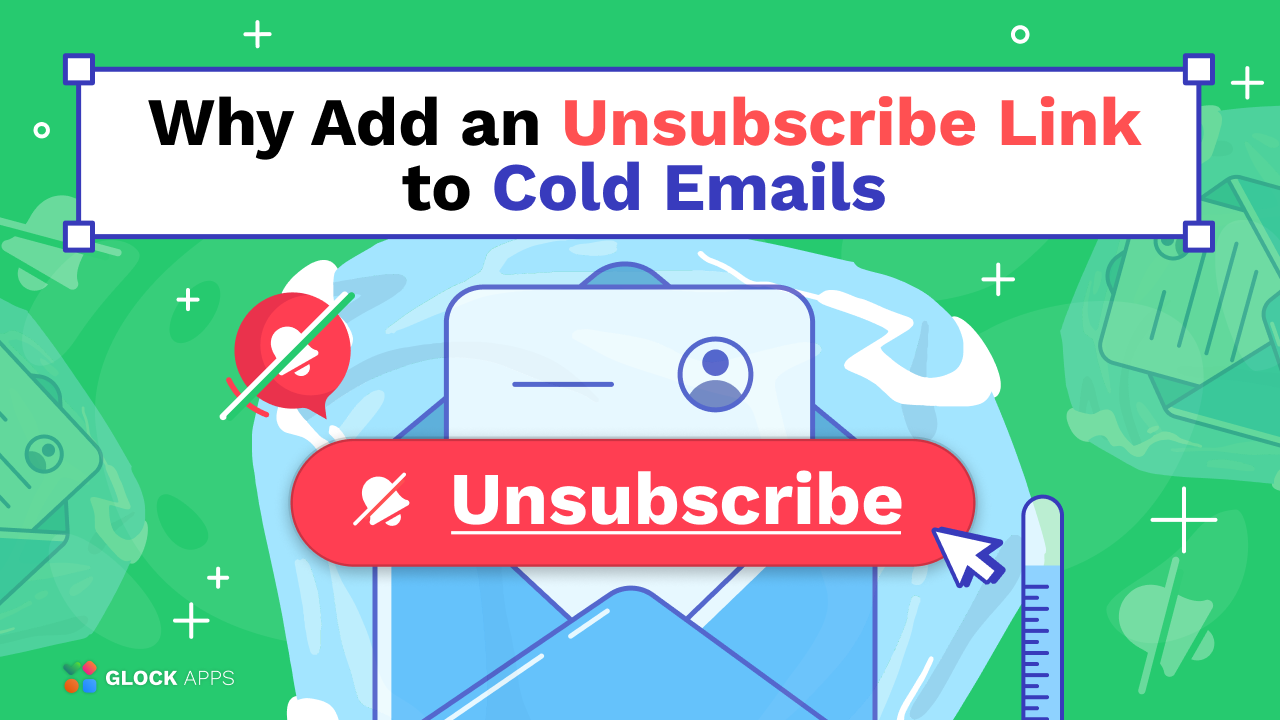Is Cold Emailing Illegal: Check the Regulations in Different Countries
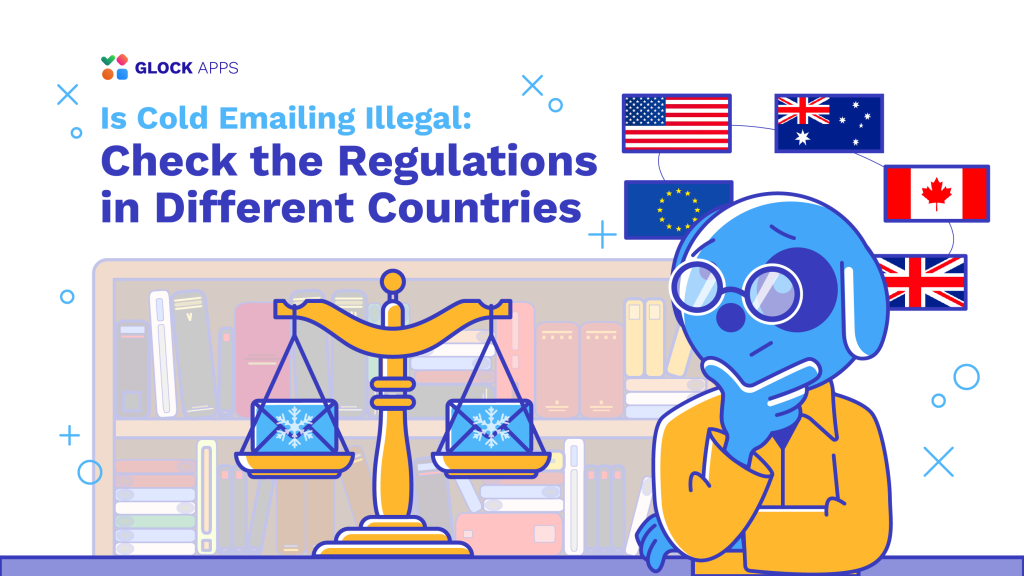
Table of contents
Cold Email Legality: What You Need to Know
Delving into cold email outreach for your business? It’s crucial to understand its legalities.
Although cold emailing is a valid outreach approach, it must operate within the parameters set by laws like CAN-SPAM in the U.S. and GDPR in Europe. Navigating the legality of cold emailing can be a challenge for many specialists as they craft messages to individuals they don’t know. Considering the legal issues? Stay informed and follow our article to ensure your cold emails are legitimate and effective.
Is Cold Email Illegal?
Cold emails remain a foundation of sales outreach strategies, despite a more respectful method emerging. Generally, it is completely legal, but there are important regulations and guidelines you must adhere to, especially to comply with anti-spam laws, all of which we’ll break down below. Read on to make sure your cold email strategy doesn’t lead to trouble.Depending on where your prospects are located globally, you’ll need to align your cold email campaigns to ensure compliance with specific laws, which can significantly impact your outreach efforts.
Be the first to know about email deliverability tips! Sign up for our newsletter and stay informed with the latest news and strategies.
Cold Emailing Rules and Regulations in Different Countries
1. Cold Email Regulations in the USA.

In the United States, cold email regulations are primarily governed by the CAN-SPAM Act. Each email that violates the law is subject to a fine of up to $51,744. If you’re emailing a large list, this means that a small mistake can have big consequences. But following this law isn’t difficult:
- Ensure accurate information: “From,” “To,” “Reply-To,” initiator, and routing details.
- Subject lines must reflect the content truthfully.
- Clearly and conspicuously identify messages as advertisements.
- Include location – a valid physical postal address in the message.
- Explain the opt-out process clearly and conspicuously. Provide an easy way for recipients to opt-out, with a return email address or alternative online method.
- Honor opt-out requests within 10 business days. Opt-out mechanisms must operate for at least 30 days. No fees or excessive personal information should be required.
- Subscribers and members maintain opt-out rights for marketing emails. Consent isn’t necessary for sending to members, but the inclusion of an unsubscribe link is crucial unless the message aligns with “transactional or relationship” categories outlined in the Act.
- Opt-Out transfer restrictions, which means cannot sell or transfer email addresses once recipients opt-out, except to a hired compliance company.
- Legal responsibility cannot be contracted away, even when outsourcing to third-party companies. Hiring a company for email marketing doesn’t absolve legal responsibility; both the promoting product company and the sender may be held accountable. Similarly, when engaging in outsourcing software development, it is important to maintain clear accountability and compliance with relevant regulations.
2. Cold Email Laws in Canada.

In Canada, sending cold emails is subject to the Canadian Anti-Spam Legislation (CASL), which outlines strict guidelines to ensure lawful electronic communications. Understanding these regulations is essential to avoid penalties and maintain ethical marketing practices. Remember, adherence to these regulations is crucial to avoid legal consequences and maintain a positive sender reputation.
Here’s a brief overview of key points to consider when engaging in cold email outreach within the Canadian legal framework:
- Opt-In Consent Requirement:
Obtain explicit consent before sending commercial electronic messages (CEMs).
Consent should be clear, with the recipient actively opting in.
- Identification Information:
Include accurate identification details in CEMs, such as the sender’s name, physical mailing address, and contact information.
- Unsubscribe Mechanism:
Provide a clear and functional unsubscribe mechanism in every CEM.
Honoring unsubscribe requests promptly is mandatory.
- Express and Implied Consent:
Differentiate between express consent (explicit permission) and implied consent (existing business relationships or inquiries).
- Business Relationships and Inquiries:
Implied consent exists for CEMs related to existing business relationships or inquiries.
The duration of implied consent varies based on the nature of the relationship or inquiry.
- Penalties for Non-Compliance:
Non-compliance with the CASL can result in significant penalties, including fines.
- Understanding CASL Guidelines:
Stay informed about the guidelines provided by the Canadian Anti-Spam Legislation to ensure compliance.
CASL stands out as one of the most stringent legislations globally, presenting unique challenges in its application and interpretation. Not adhering to these regulations can result in severe consequences. The Canadian Radio-Television and Telecommunications Commission has the authority to impose fines, reaching up to $1 million for individuals and up to $10 million for corporations found in violation of its provisions.
3. Is Cold Emailing Legal in The European Union?

Yes, cold emailing is legal in the European Union, but if you’re sending marketing emails to EU citizens, you must adhere to two regulatory frameworks.
The EU’s stance against spam was first established in the Privacy and Electronic Communications Directive 2002 (PECD), also referred to as the ePrivacy Regulation. This directive emphasizes the right to privacy in personal and communication domains.
Compliance with the GDPR (General Data Protection Regulation), effective on May 28, 2018, is also essential. Organizations outside the EU engaging with EU residents, offering goods, services, or communication, must adhere to the GDPR. While the PECD emphasizes “respect for private and family life,” the GDPR centers on the “protection of personal data.”
Overview of GDPR and Cold Email Laws in the EU:
- Law Jurisdiction:
GDPR, implemented in 2018, dictates the standards for safeguarding personal data for individuals within the European Union (EU) and the European Economic Area (EEA).
- Lawful Basis for Processing:
Sending cold emails requires a lawful basis for processing personal data, such as the recipient’s consent or the necessity for a contract.
- Explicit Consent:
Before sending marketing emails to individuals, it is crucial to obtain explicit and informed consent. This consent should be freely given, specific, and unambiguous, ensuring that individuals have a clear understanding of the nature of the communication they are agreeing to receive.
- Data Subject Rights:
Individuals have rights regarding their personal data, including the right to access, rectify, and erase their information.
- Transparency in Data Processing:
Clear communication on how personal data will be used and processed is mandatory. This includes information in cold email communications.
- Data Protection Officer (DPO):
Organizations processing substantial amounts of personal data may need to appoint a Data Protection Officer to ensure compliance.
- Penalties for Non-Compliance:
GDPR violations can result in significant fines, which are calculated based on the severity and nature of the infringement.
It’s important to note that each EU country has supplementary regulations alongside the GDPR. Identifying the relevant national legislation for your cold emails and ensuring GDPR compliance is imperative.
4. Is It Legal to Send Cold Emails in the United Kingdom?

Yes, in the United Kingdom, cold emailing is legal, but it comes with regulations. Those handling domestic personal information, including email addresses, must comply with three key laws. The Data Protection Act 2018 (DPA 2018) ensures the lawful processing of personal data, the General Data Protection Regulation (UK GDPR) emphasizes the protection of personal data, and the Privacy and Electronic Communications Regulations (PECR) outlines rules for electronic communications, including email marketing.
The DPA 2018 ensures the lawful processing of personal data and safeguards individuals’ privacy rights. It delineates the principles for the fair and transparent collection, storage, and usage of personal information. Additionally, it empowers individuals to have control over their data by providing mechanisms for access, correction, and deletion of their personal information held by data controllers. Complying with the DPA 2018 is crucial for businesses engaged in cold emailing, as it establishes a framework for responsible data management and processing.
The UK GDPR emphasizes the protection of individuals’ fundamental rights and freedoms concerning the processing of their personal data. It sets out stringent requirements for the lawful and transparent handling of personal information, imposing obligations on data controllers and processors. The UK GDPR grants individuals greater control over their data, introducing principles of data minimization, purpose limitation, and accuracy. Businesses engaging in cold emailing must adhere to these regulations, ensuring that their practices align with the principles of fairness, transparency, and accountability outlined in the UK GDPR.
The PECR outlines specific rules for electronic communications, including email marketing, within the United Kingdom. PECR provides additional safeguards and requirements for sending direct marketing communications via email. Under PECR, individuals have the right to privacy and protection against unsolicited electronic communications. Marketers engaging in cold emailing must comply with PECR’s provisions, which include obtaining prior consent before sending marketing emails, providing clear opt-out mechanisms, and ensuring the accuracy of sender identification information. Non-compliance with PECR may result in penalties and sanctions to uphold the privacy rights of individuals in the UK.
Consequently, when conducting cold email outreach in the UK, strict compliance with these data protection regulations is essential to maintain legal and ethical practices.
5. Is Cold Emailing Legal in Australia?

Nobody likes thoughtless pointless spam, so in Australia, the act of sending unsolicited emails is strictly prohibited, constituting an illegal practice. Cold emailing in Australia is subject to regulations aimed at protecting individuals’ privacy and preventing unsolicited electronic communications. While there isn’t a specific law dedicated solely to regulating cold emails, several existing regulations govern electronic communications and data protection.
The Privacy Act 1988 regulates the handling of personal information by organizations. While it doesn’t explicitly address cold emails, it sets principles for the collection, use, and disclosure of personal information.
The Spam Act 2003 is the primary legislation governing electronic messaging, including email. It prohibits the sending of unsolicited commercial electronic messages without the recipient’s consent. Cold emails sent for marketing purposes must comply with the requirements outlined in this act.
Key Points from the Spam Act 2003:
Consent: Cold emails for marketing purposes require the recipient’s consent.
Identification: The sender must clearly identify themselves and provide accurate contact information.
Unsubscribe: Cold emails must include a functional and free-of-charge unsubscribe mechanism.
Compliance Requirements:
Consent: Obtaining explicit consent from recipients before sending cold emails is crucial. Consent should be informed, voluntary, and easily revocable.
Identification: Identify the sender and provide accurate contact details, including a valid physical address.
Unsubscribe Mechanism: Include a visible and functional unsubscribe mechanism in each cold email, allowing recipients to opt out easily.
Penalties for Non-Compliance:
Violations of the Spam Act can result in significant penalties. For individuals, fines can reach up to $220,000 per day, while corporations may face fines of up to $2.2 million per day.
It is also important for all Australian marketers to stay informed with the Spam Regulations 2021, which made changes to the existing regulations of 2004 and clarified the terms relating to email addresses used to send opt-out messages.
Strict compliance with these regulations ensures legal and ethical cold email practices in Australia.
Closing Thoughts
In conclusion, cold emailing rules and regulations vary across different countries, and compliance is crucial for legal and ethical outreach. Marketing specialists must stay informed, obtain consent, provide opt-out options, and respect privacy to navigate these diverse legal landscapes responsibly.
Disclaimer: This article is provided for informational purposes only and should not be considered legal advice. For specific legal guidance related to your circumstances, it is recommended to consult with a qualified legal professional.
FAQ
Yes, sending cold emails can be legal, but it must comply with anti-spam regulations. Laws such as the CAN-SPAM Act (U.S.), GDPR (EU), and similar regulations in other countries outline specific requirements for lawful cold email practices. Obtaining consent, providing clear identification, and offering opt-out options are essential components of legal cold emailing.
Yes, in many jurisdictions, sending emails without proper consent is considered illegal. Laws like the CAN-SPAM Act (U.S.), GDPR (EU), CASL (Canada), and similar regulations in other countries require obtaining consent before sending commercial emails.
Proper consent typically involves the recipient willingly providing permission to receive emails, often through an opt-in process. Explicit consent is preferred, where individuals are fully aware and agree to receive specific types of emails.
Yes, sending cold emails for marketing purposes is allowed, but it must comply with relevant laws. Consent, proper identification, and compliance with regulations are essential to conduct lawful email marketing.
Yes, it is generally considered illegal to send commercial emails without providing a clear and functional unsubscribe link. Many anti-spam laws, including the CAN-SPAM Act and GDPR, mandate the inclusion of an opt-out mechanism in marketing emails. Failure to include an unsubscribe link or making it difficult for recipients to opt out may lead to legal consequences and damage the sender’s reputation.
Yes, creating a fake email or using deceptive practices in email communication is generally against the law and violates various anti-spam regulations. The act of impersonating someone or using false information in emails is not only unethical but can lead to legal consequences. Always ensure transparency and honesty in your email communications to comply with the main laws.
Yes, signing someone up for spam without their consent is generally regarded as illegal and unethical. It is considered a violation of anti-spam regulations and can lead to legal consequences. Respecting individuals’ privacy and obtaining their explicit consent before adding them to any mailing list is crucial.
Signing someone up for emails without their consent can be considered unethical and may violate anti-spam regulations. Always obtain explicit consent before adding someone to an email list.
